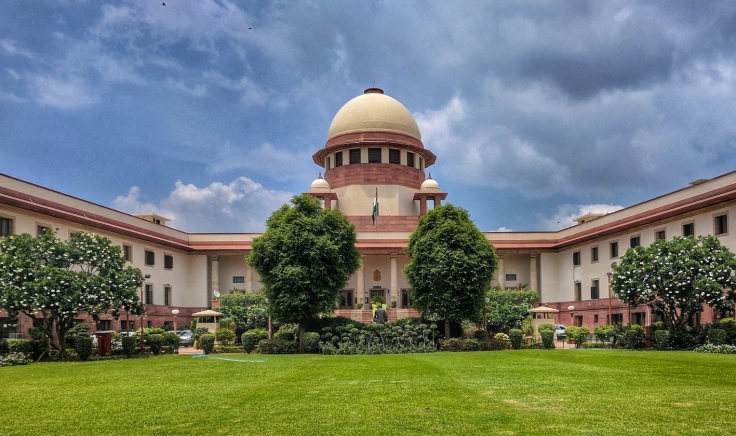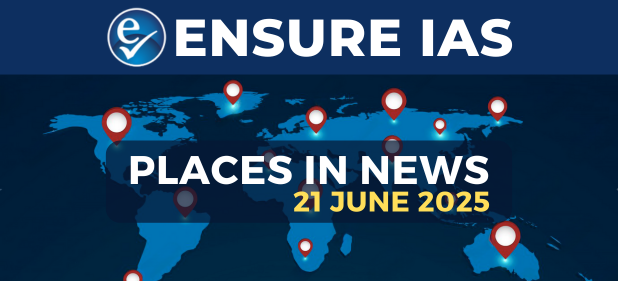- Courses
- GS Full Course 1 Year
- GS Full Course 2 Year
- GS Full Course 3 Year
- GS Full Course Till Selection
- Answer Alpha: Mains 2025 Mentorship
- MEP (Mains Enrichment Programme) Data, Facts
- Essay Target – 150+ Marks
- Online Program
- GS Recorded Course
- Polity
- Geography
- Economy
- Ancient, Medieval and Art & Culture AMAC
- Modern India, Post Independence & World History
- Environment
- Governance
- Science & Technology
- International Relations and Internal Security
- Disaster Management
- Ethics
- NCERT Current Affairs
- Indian Society and Social Issue
- NCERT- Science and Technology
- NCERT - Geography
- NCERT - Ancient History
- NCERT- World History
- NCERT Modern History
- CSAT
- 5 LAYERED ARJUNA Mentorship
- Public Administration Optional
- ABOUT US
- OUR TOPPERS
- TEST SERIES
- FREE STUDY MATERIAL
- VIDEOS
- CONTACT US
Supreme Court’s 2025 Ruling on Arrest Powers under CGST and Customs Acts
Supreme Court’s 2025 Ruling on Arrest Powers under CGST and Customs Acts

- In March 2025, the Supreme Court ruled on the case Radhika Agarwal v Union of India.
- The case concerned the arrest powers under the Customs Act, 1962 and the CGST Act, 2017.
- The Customs Act, 1962 and CGST Act, 2017 operates under the Central Board of Indirect Taxes and Customs (CBIC), which is a part of the Department of Revenue within the Ministry of Finance, Government of India.
- The CBIC is responsible for formulating policies related to customs duties, Goods and Service Tax (GST), and central excise duties, as well as preventing smuggling and managing other customs-related matters
- The Court held that arrest powers under these Acts are analogous to police powers.
- Therefore, officials must follow CrPC safeguards applicable to police officers.
Mandatory Procedural Safeguards
- Arrestee must be produced before a magistrate within 24 hours.
- Arresting officer must inform a family member or friend about the arrest.
- The arrestee has the right to have a lawyer present nearby during interrogation.
Connection to Previous PMLA Ruling
- In Arvind Kejriwal v Directorate of Enforcement (2024), SC limited ED’s arrest powers under the PMLA, 2002.
- The same principles were extended to Customs and CGST officers in the present case.
Cognisable Offences and Arrest Powers
- Under both Acts, certain offences are classified as cognisable (e.g., tax evasion over ₹50 lakh under Customs Act).
- Such classification allows arrest without a Magistrate’s warrant.
- However, the SC clarified that this does not allow arbitrary arrests.
Risks of Arbitrary Use of Power
- The Court reiterated its warning from Kejriwal case about misuse of arrest powers.
- It emphasized that similar misuse by GST/Customs officers would violate constitutional and legal rights.
Three Essential Safeguards Required Before Arrest
- Material in Possession
- Officer must have evidence to support guilt, not just suspicion.
- Must record reasons in writing.
- Cannot ignore evidence that supports innocence.
- Written “Reasons to Believe”
- Officer must write down why they believe the person committed the offence.
- These reasons must be based on material evidence.
- Even though courts can’t judge the quality of reasons, they must be logically connected to the case.
- Grounds of Arrest to be Provided
- Arrestee must be informed of the exact grounds of arrest.
- This enables them to seek bail or challenge the arrest effectively.
- Without this, legal defense becomes impossible.
Findings on Coercion and Misuse
- SC examined data post-GST rollout (2017 onwards).
- Found some merit in claims that arrest threats were used to extract tax payments.
- Ruled that such coercive practices are illegal.
Remedies for Victims of Coercion
- Anyone who paid taxes under arrest threats can approach courts for refund.
- Departments are required to initiate action against erring officers involved in coercion.
Final Position of the Court
- The Court refused to strike down the arrest powers under the CGST and Customs Acts.
- Instead, it imposed strict safeguards to ensure transparency, accountability, and protection of rights.
What changes after the judgement ?
|
Aspect |
Before Supreme Court Ruling |
After Supreme Court Ruling |
|
Nature of Arrest Powers |
Arrest powers were treated as administrative or quasi-judicial, without needing to follow CrPC procedures strictly. |
Treated as analogous to police powers, must follow CrPC safeguards for arrest, search, and seizure. |
|
Presentation Before Magistrate |
Not strictly enforced under GST/Customs Acts. |
Mandatory to present arrestee before a magistrate within 24 hours. |
|
Right to Inform Relatives |
No consistent practice or legal requirement to inform relatives/friends. |
Arresting officer must inform a friend or family member of the arrestee immediately. |
|
Presence of Advocate |
No guaranteed right during interrogation. |
Right to have a lawyer present in the vicinity during interrogation reaffirmed. |
|
Grounds of Arrest |
Grounds often not communicated; arrests made without transparency. |
Arrestee must be provided grounds of arrest, enabling them to seek bail or challenge the arrest. |
|
Recording Reasons to Believe |
No legal requirement under GST/Customs Acts to record "reasons to believe". |
Officers must record written reasons to believe the arrestee is guilty, based on available material. |
|
Evidence Before Arrest |
Arrests could be based on suspicion or incomplete evidence. |
Officers must have material in possession justifying arrest; suspicion alone is not enough. |
|
Use of Arrest Threats |
Officials allegedly threatened arrest to force tax payments. |
SC ruled that coercing tax payments via arrest threats is illegal; refunds and legal recourse allowed in such cases. |
|
Accountability for Misuse |
No specific action mandated for misuse of power. |
Departments must act against erring officers if coercion or illegal arrests are proven. |
By equating these powers to those of the police and mandating compliance with CrPC safeguards, the Court has strengthened protections for individuals against arbitrary and coercive actions. While the legal authority to arrest remains intact, it now comes with a clear duty of procedural transparency, accountability, and fairness. This ruling is a significant step in balancing the interests of revenue enforcement with the fundamental rights of citizens.




